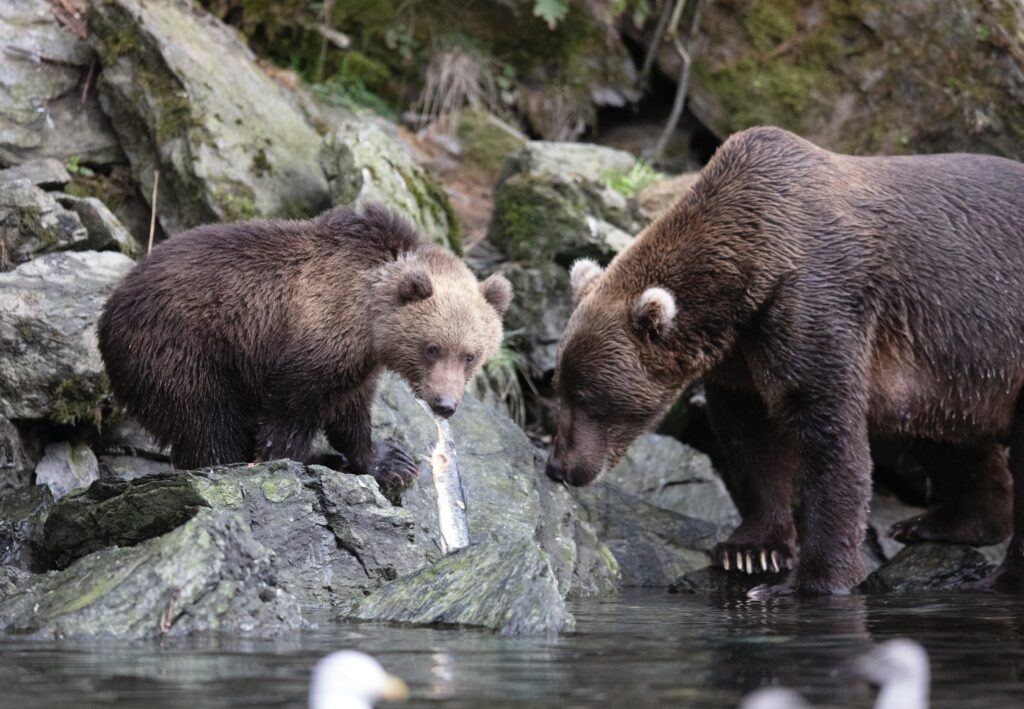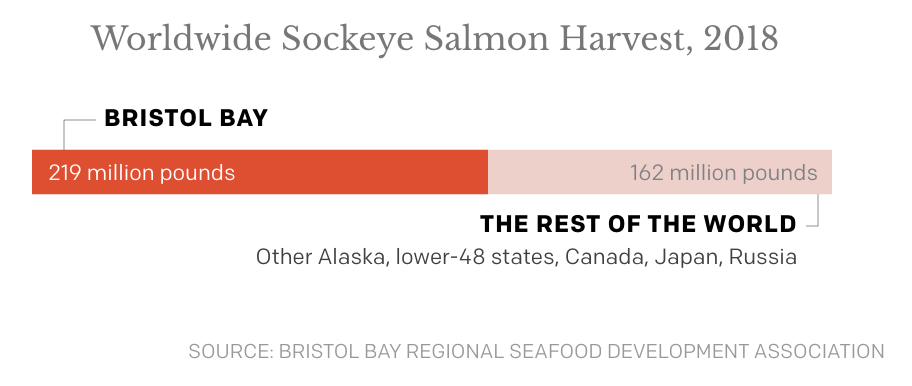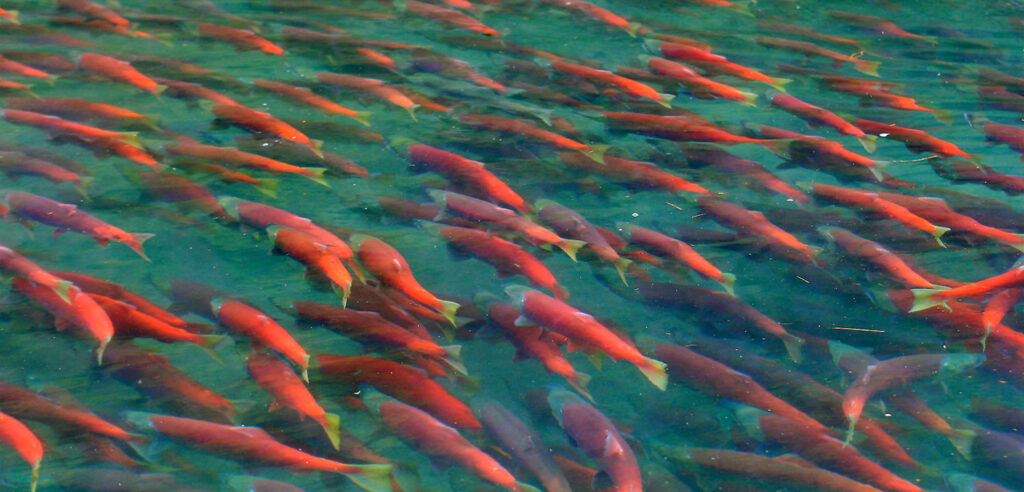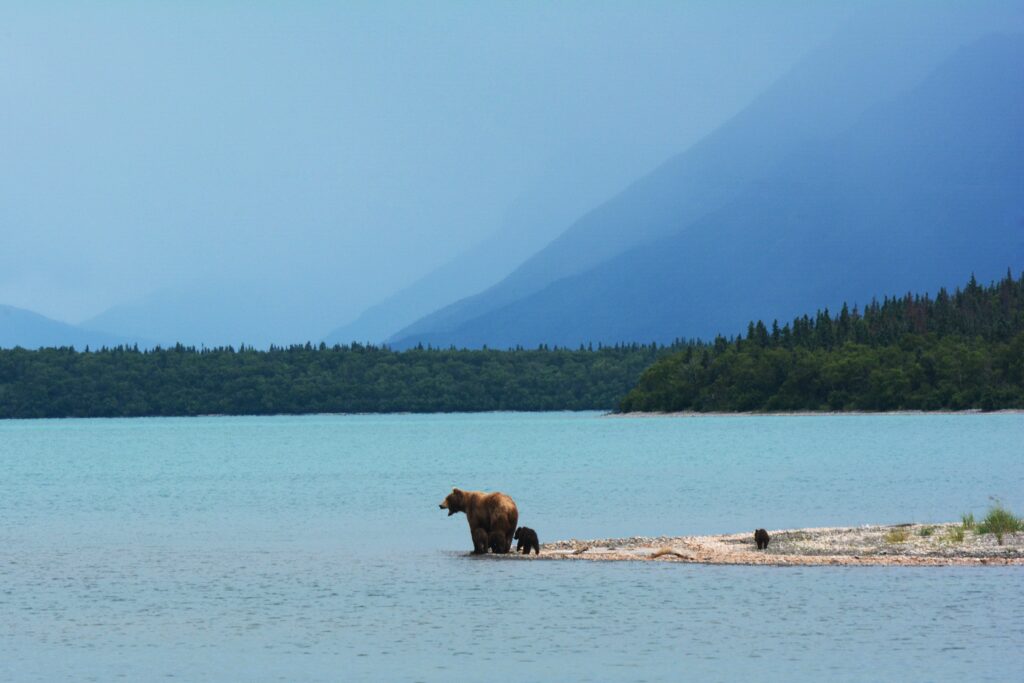
Author’s Note
Author’s Note: Happy Earth Day, everyone! ? It’s a weird one as much of the world sits isolated in quarantine. I saw my neighbors pick up trash this morning as they walked their dog and I am inspired by creative ways to honor the earth today (and every day).
For my first post on Conscious Human Collective, I would like to shed light on a matter that was brought to my attention through wildlife photographer Brooke Bartleson (Instagram: @brookelittlebear) and a webinar entitled “The Digital World Premiere: Pebble Redux”, hosted by Natural Habitat Webinars (a subsidiary of World Wildlife Fund). As I launch this idea to create a platform for conscious collective thought as it relates to the environment, threatened species, and native cultures, I hope to rely on and eventually partner with experts, organizations, and individuals doing positive and powerful work.
I have never been to Alaska, but it’s at the top of my list of places to travel for its unique and beautiful environment and rich abundance of wildlife. If you feel a connection to the Alaskan wilderness, whether you have a personal connection or experience as a resident or visitor, or if it simply calls to you from deep in your soul, please read on.
Peace & Love to all things Wild,
Taylor
The proposed Pebble Mine in Bristol Bay, Alaska, would cause irreversible devastation to some of the world’s largest salmon and brown bear populations by directly impacting the world’s largest salmon run. This iron ore mine would include a disposal site to hold 1.4 billon tons of toxic waste within the now untouched Alaskan waters, creating a Superfund site that would have to be managed, with taxpayer’s dollars, in perpetuity (The Digital World Premiere: Pebble Redux). For scale, the Pebble Mine is so large that you could fit all other mines in Alaska inside of it. It would be the largest mine in North America, and one of the largest mines in the world (Levit & Chambers, 2012). The EPA declared the toxicity would have “significant and unacceptable adverse effects” to the Bristol Bay waters and many other connected waterways.

Animals and the natural habitat are not the only things to suffer consequences of the proposed mine. This development would endanger Alaskan’s way of life, food sources, and commercial fishing & tourism economies. Alaskans rely on the Bristol Bay region for food to get through the winter and for commercial fishing. Fishermen come from all across the world to fish in the area. The region’s fishing industry is valued at $350 million/year and fuels 14,000 jobs, outnumbering the Pebble Mine’s proposed job opportunities nearly 100 to one (savebristolbay.org). The plentiful salmon populations also attract brown bears, creating an unparalleled bear-viewing tourism industry, which brings in an additional $50 million/year and creates 500 jobs (Nat Hab Webinars – The Digital World Premiere: Pebble Redux).

Roads are proposed as close as 250 feet from iconic bear-viewing sites that historically have only been accessible by foot, creating a disturbance to wildlife, and additional runoff pollution into the waters (The Digital World Premiere: Pebble Redux).
This area has remained untouched to development. It is sacred to the Native people in the region and it is critical for the Alaskan economy. It is a precious resource that tourists are allowed to share in with a lottery on permits to the McNeil River State Game Sanctuary & Refuge. Land management up to this point has been conscious and sustainable in order to maximize the well-being of the wildlife while allowing tourists and locals to glimpse the pristine beauty of an environment that is vital for salmon, brown bears, and other creatures (Nat Hab Webinars – The Digital World Premiere: Pebble Redux).
As of now, the Army Corps is planning to issue an environmental statement on the project this summer, which is one of the final steps before issuing a permit. According to the EPA, the Corps is relying on inadequate science that “likely understates harm to the bay” (Anchorage Daily News). During the coronavirus pandemic, the Corps is, and should be, focusing its energy elsewhere. The window to gather accurate science on the mine’s true environmental impact is closing.
For the bears, the salmon, for Alaska’s untouched wilderness and for the people of Alaska, send a letter to your senators to ask the Army Corps of Engineers to postpone this project amidst the Coronavirus pandemic. Visit www.defendbristolbay.com/bears to comment.
Spread awareness on social media by posting your bear photos with the hashtag #shareyourbears

Additional notes: In 2014, the EPA proposed protections for the area under the Clean Water Act, and the company proposing the mine, the Pebble Limited Partnership (a Canadian company), filed to block this protection (National Fisherman). The EPA withdrew their proposal in 2019, after Trump’s visit to Alaska’s governor, Mike Dunleavy. This decision has been fueled by politics, lobbying, and profit. Decision-makers have chosen to ignore much of the science that the EPA had previously published showing the project’s devastation to the environment.
““Meanwhile, Pebble is spending more than any other mining company in D.C., focused singularly on getting their federal permit before the end of 2020,” said Commercial Fishermen for Bristol Bay in a release issued Monday, April 20. “In spite of the fact that all of Bristol Bay and its fishermen are focused on preventing the spread of covid-19 and working to protect residents and fishermen from both physical and economic harm, the U.S. Army Corps of engineers remains on track to meet Pebble’s requested timeline.”” (National Fisherman).
Sources:
“The Digital World Premiere: Pebble Redux” Webinar (April 22, 2020). Hosted by Natural Habitat Adventures.
Levit, Stuart, and David Chambers. Center for Science in Public Participation, 2012, pp. 1–12.
https://www.adn.com/business-economy/energy/2020/04/20/pebble-mine-opponents-lose-court-case-over-2014-epa-report/
www.defendbristolbay.com
https://earthjustice.org/features/alaska-s-bristol-bay-the-pebble-mine
https://www.nationalfisherman.com/alaska/corked-again-bristol-bay-coalitions-pebble-mine-lawsuit-dismissed/
http://www.savebristolbay.org/in-the-news/2017/1/31/new-study-bristol-bay-fishing-jobs-outnumber-pebble-mine-jobs-nearly-100-to-one
https://www.wildsalmoncenter.org/2011/02/01/epa-bristol-bay-study/

This makes me so mad! Humans have already done enough damage to our planet. We should be trying to repair the damage that has already been done, not create more. Thank you for your thoughtful blog and opening my eyes to this issue.